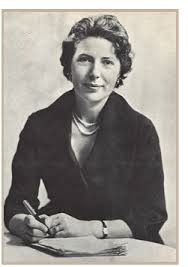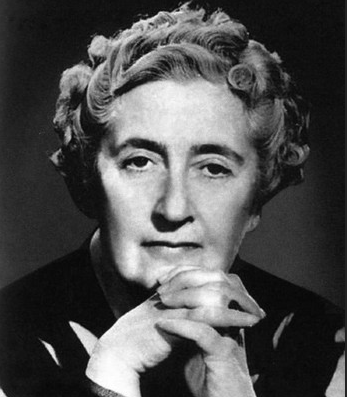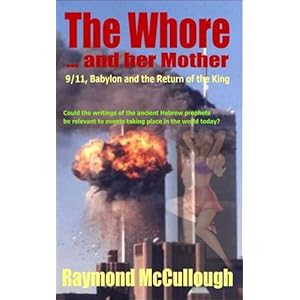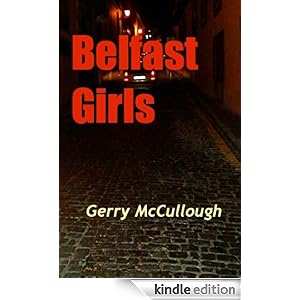When I was quite a young child (eight at the most) one of the delights of my life was to sneak quietly into the 'attic', i.e. the room next to my third floor bedroom in our terrace house in Belfast, and explore the piles of stuff kept there for want of space elsewhere. Some of the most exciting things were the books which were by no means intended to be thrown out, but which just didn't have a current home in one of the bookcases downstairs. On a red letter day, I curiously picked up one of my mother's books, a fat dark green hardback (I can still visualise it clearly) with the intriguing title, Partners in Crime. This was my first introduction to one of my all time favourite writers, Agatha Christie.
Partners in Crime is a lovely book. It is a set of short stories featuring the young couple Tommy and Tuppence who first appeared in Christie's second book, The Secret Adversary. Taking over a detective agency at the suggestion of Tommy's boss in the Secret Service, with the aim of tracking down the spies who are using it, Tommy and Tuppence decide that they should use the experience they've gained by reading 'every detective story that has been published in the last ten years' to solve the crimes which come their way from bona fide customers. Thus, in one story Tommy takes on the role of Sherlock Holmes, in another Father Brown, while in others Tuppence is the less well known Roger Sheringham or Mr. Fortune. This makes for an amusing and entertaining series of stories, as well as excellent mysteries with the usual Christie twist in the tail. (Incidentally, it introduced me to a range of other writers whom I tracked down over the years and whom I still enjoy.) I particularly love the fact that the male, Tommy, and the female character, Tuppence, play equal parts in solving the various crimes.
Of course, at the age of eight or so, I didn't appreciate the skilful parodies as much as they deserved, but I was enthralled and engrossed by the stories, and fell in love with the two main characters. I have to admit that when I reached The Man in the Mist, the Father Brown parody, I was so terrified that I dropped the book with a thud, had a series of nightmares over the following week, and didn't go back to Mrs Christie for at least another year. But once I did, I read everything I could get my hands on, and have been steadily re-reading her ever since.
Agatha Christie is obviously best known as the creator of Hercule Poirot, and to an almost equal extent of Miss Marple. While I love these characters and everything she's written about them, I have to confess that my own favourites amongst Christie's writing are, firstly, her various short stories; and secondly, the books where she takes a young couple as central characters. My early experience of her may well be influencing me here!
She wrote at least as many books of this type as about either of her better known detectives. They Came To Bagdad is one of my personal favourites, but so is The Man in the Brown Suit, Why Didn't they ask Evens?, Destination Unknown, The Sittaford Mystery, The Pale Horse, etc, etc etc. I'm tempted to include here The Moving Finger, in which, to be sure, Miss Marple eventually makes a brief appearance and solves the mystery, but which is mainly about Jerry and Megan – a couple I really like. The Moving Finger, incidentally, has one of Christie's cleverest plots, and one which has been copied by a number of other writers (such as Harlan Coben) because it's so good. If you don't already know what it is, I'm certainly not going to spoil it for you.
As a writer of short stories, Agatha Christie has few equals. The Mysterious Mr Quin is a book I return to probably more than any other. The originality of the main character, the excellent plots, and the touch of enchantment which runs throughout make it an experience which I want to have over and over again. The only problem with this is that I over-read it, and sometimes have to lay it aside for longer than I'd like before I can fully enjoy it again.
Then there's Parker Pine Investigates, The Hound of Death, and my favourite Miss Marple book, The Thirteen Problems. Thirteen short stories, in which Miss Marple pits her wits against a group of clever people and consistently wins. The first six stories are about the 'Tuesday Night Club', where six people meet once a week, and each tells a story with the solution left out for the others to guess. The next six stories are similar, with a final one showing Miss Marple in action rather than sitting and thinking.
The Poirot short stories, to my mind, are not on an equal footing with these. Poirot developed as the books went on, and it's the middle period which shows him, and Christie, at their best. Sad Cypress, for instance, is among the more enjoyable, or Five Little Pigs (one I particularly like) or The Hollow, or Taken at the Flood. The well known Death On the Nile and Murder on the Orient Express always surprise me by how good I find them when I come back to them, for in between readings I tend to begin thinking of them as less good than they are. Cards On The Table is one I particularly love, and I was, therefore, greatly annoyed by the TV version a few years ago which mucked up the plot something chronic!
Agatha Christie herself agreed that a book needs some changes before it can be successfully transferred to stage or film, and in fact changed the ending of the book now known as Then There Were None for the film version, re-writing it herself. However, her general opinion of people who want to change her books for this purpose can be seen in the very amusing passages of Mrs McGinty's Dead which deal with Mrs Oliver's feelings on this subject. Mrs Oliver is a very witty take-off of Christie herself, and I always love reading the books in which she plays a role. In Mrs McGinty's Dead, she is attempting to work on a stage adaptation of one of her detective stories with an opinionated young playwright who wants to completely change the age and character of her well-known and popular detective. 'Then he can't be Sven Hjerson. Just make him a Norwegian young man who's in the Resistance movement,' she says, and when the reply is that the whole idea is to have a play about Sven Hjerson, who is 'box-office', she wails that her readers know what he's like. But, she's told, that's got nothing to do with the stage! (For stage, read Television.)
As I start to write about them, I realise how many of the Poirot books I really like, as well as the other, non series, type.
I see that so far I haven't mentioned Mrs Dane Calthrop, a brilliant character who appears in The Moving Finger and in The Pale Horse, and adds considerably to the attraction of these two excellent books. Speaking of her husband, the vicar, who has received an anonymous letter accusing him of carrying on with the school mistress, she says, 'Quite absurd, because Caleb has absolutely no taste for fornication. He never has had. So lucky, being a clergyman.' Laugh out loud stuff, for me anyway. But Mrs Dane Calthrop is not just amusing, she's an impressive character, and no one should write about Agatha Christie without at least mentioning her.
This blog is already rather long. Much as I'm enjoying writing it, I'd better stop now. Next time I'll be writing about a new book rather than an old favourite, but after that again I plan to post Part 2 of my thoughts on Agatha Christie – this time about 'Mary Westmacott', the pseudonym she was forced to adopt when she wanted to write books which didn't fit into the detective story genre. Hope to see you then!
Thursday 29 September 2011
Tuesday 20 September 2011
To Infinity and Beyond Nostalgia.
 |
| Beyond Nostalgia |
If not, this is where you do, and afterwards are properly grateful to me for the introduction, I'm quite sure.
I first 'met' Tom on Authonomy where he, like me, was slogging it out in the long battle which was supposed to lead to a publishing deal with Harper Collins. Of all the thousands (yes, literally) of books of which I read the first part on that site, Tom's Beyond Nostalgia stood out among a tiny handful of books which were ones any publisher with any sense should have grabbed. (And he was kind enough to say something similar about my own Belfast Girls.)
 |
| Belfast Girls |
It's no surprise that so many have wanted to read this book.
 |
| The Last American Martyr |
The main character, another Tom, has won a Nobel prize for his first and only book, which exposes the corruption and greed of the world's economy, and moves millions all over the world to rise up in protest to bring about change. But this has put Tom in fear of his life, so that he has been forced to hide out, after some horrific experiences, from his enemies in Big Business.
The brutal truth, the up close reality, of Tom Winton's writing on this very important subject, should make his book as equally influential and successful worldwide as that of his character, if there's any justice. One thinks of books like Salinger's Catcher in the Rye or Steinbeck's The Grapes of Wrath, and it's instinctive to place The Last American Martyr beside them, as one which will impact a generation.
This may seem an extreme thing to say. But to me, Tom Winton stands out as a writer to be remembered.
Already I'm looking eagerly to see what this amazing man will have for us next.
You can buy Tom's books on Amazon as either paperback or Kindle, on either the USA or the UK sites.
http://www.amazon.com/Beyond-Nostalgia-ebook/dp/B004N84VO6
http://www.amazon.com/The-Last-American-Martyr-ebook/dp/B005GFM764
Friday 2 September 2011
How Fleeting is Fame: Mary Stewart
For the past month I've been very busy with two important things.
The first was helping to edit a book of which some of you will by now have heard – The Whore and her Mother, by Raymond McCullough.
The said Raymond is my husband, and his book, unlike mine, is an important and timely non-fiction look at the state of the world around us, in the light of the Hebrew prophecies respected by at least three of the major world religions.
Raymond, a professional writer for over twenty years, has spent a long time looking into this subject, reading works on Globalisation, etc, and forming his own conclusions. I think the book is written in a smooth, spare, easy to read style which makes its subject available to the ordinary reader, not only to the academic. I feel privileged to have been allowed to help in its editing, and I fully expect that The Whore and her Mother will make the type of worldwide impact that Michael Moore made with his writing about Columbia High.
The second hold up was my ongoing attempts to finish my novel, intended as a follow-up – though not a sequel – to Belfast Girls.
http://www.amazon.com/Belfast-Girls-ebook/dp/B004DNWS3W
Provisionally called Danger Danger, this book is more of a straight forward Romantic Suspense novel, and it's now, in turn, at the editing stage.
 That means I can now get round to writing the next blog about my own favourite authors, and this time I'm concentrating on Mary Stewart.
That means I can now get round to writing the next blog about my own favourite authors, and this time I'm concentrating on Mary Stewart.
Mary Stewart was consistently at the very top of the best seller lists both in the UK and in America during the sixties and seventies for her Romantic Suspense novels, and remained there during the eighties with her Arthurian legend series. I first read her books when I was still in my teens, picking up Madame Will You Talk from my older sister's bookshelf, devouring it eagerly, and then rushing through the other books without pause.
When she switched to The Crystal Cave, her first Arthur book (written from the viewpoint of Merlin) I was so disappointed that it was some years before I read it or the rest of the series, but when at last I got over my sulks and tried it out, I found to my delight that I was listening to the same bewitching voice, and finding the same delight in every page. Needless to say, I went on to read them all.
Mary Stewart does lots of the things writers today are advised not to do. She writes in the first person. To me, this makes the books more immediate and believable, and she is a skilful enough writer to manage her plot with apparent ease in spite of this. The only book she wrote in the third person, Thunder on the Right, while a good book, is noticeably less successful than any of her others. Again, she doesn't stick to one genre. She is credited with having invented the 'Romantic Suspense' as a new genre in itself, although I'd be surprised if she was actually the first – what about Jane Eyre, for instance? And Rebecca? – and so on? Finally, she changed genres at the height of her success. And far from damaging her (except for a few edjits like me, for a short while) this only made her more successful.
She set her romantic thrillers, often, in places which were interesting and romantic in themselves, such as Greece, the Highlands of Scotland, France, Crete, Hadrian's Wall, etc., and her heroines are intelligent, forthright and brave. Her style is full of beauty, as well as being striking, witty, and fast moving. Her heroes are real people, easy to believe in. Like most good thriller writers, her moral stance is impeccable.
Madam Will You Talk begins,'The whole affair began so very quietly,' and moves with breathless speed through murder and mayhem, to the heroine, Charity, being pursued in a frantic car chase through the middle of France down as far as Marseilles by a man she believes is a murderer; and reaches its climax with Charity turning the tables on the villain and holding him at gunpoint in his own car on another midnight drive. Page turning isn't a strong enough word to describe it.
Mary Stewart spoke in a rare interview of the readers who believed she herself must have experienced the things she wrote about, and didn't realise that a writer's skill lies in making things up. She also refused to be put in a category, as one type of writer or another, but said that she would like, if she could chose, to be known by the old description of 'storyteller.' And so she is, and a great one too.
So how is it that today so many people have never heard of her? Fame is indeed fleeting. Milton said that 'Fame is the spur' which pushes us on, not just writers but everyone who wants to achieve something with their life.
Clearly, we've got it wrong if, like Milton, we expect to have lasting fame. Okay, Shakespeare has it, but few others. Fame, like yesterday's newspaper, doesn't last for long. Perhaps we should just try to enjoy writing for its own sake, and for whatever small financial reward it may bring, and possibly for some small temporary fame – as long as we don't expect it to last!
The first was helping to edit a book of which some of you will by now have heard – The Whore and her Mother, by Raymond McCullough.
The said Raymond is my husband, and his book, unlike mine, is an important and timely non-fiction look at the state of the world around us, in the light of the Hebrew prophecies respected by at least three of the major world religions.
Raymond, a professional writer for over twenty years, has spent a long time looking into this subject, reading works on Globalisation, etc, and forming his own conclusions. I think the book is written in a smooth, spare, easy to read style which makes its subject available to the ordinary reader, not only to the academic. I feel privileged to have been allowed to help in its editing, and I fully expect that The Whore and her Mother will make the type of worldwide impact that Michael Moore made with his writing about Columbia High.
http://www.amazon.com/Belfast-Girls-ebook/dp/B004DNWS3W
Provisionally called Danger Danger, this book is more of a straight forward Romantic Suspense novel, and it's now, in turn, at the editing stage.
Mary Stewart was consistently at the very top of the best seller lists both in the UK and in America during the sixties and seventies for her Romantic Suspense novels, and remained there during the eighties with her Arthurian legend series. I first read her books when I was still in my teens, picking up Madame Will You Talk from my older sister's bookshelf, devouring it eagerly, and then rushing through the other books without pause.
When she switched to The Crystal Cave, her first Arthur book (written from the viewpoint of Merlin) I was so disappointed that it was some years before I read it or the rest of the series, but when at last I got over my sulks and tried it out, I found to my delight that I was listening to the same bewitching voice, and finding the same delight in every page. Needless to say, I went on to read them all.
Mary Stewart does lots of the things writers today are advised not to do. She writes in the first person. To me, this makes the books more immediate and believable, and she is a skilful enough writer to manage her plot with apparent ease in spite of this. The only book she wrote in the third person, Thunder on the Right, while a good book, is noticeably less successful than any of her others. Again, she doesn't stick to one genre. She is credited with having invented the 'Romantic Suspense' as a new genre in itself, although I'd be surprised if she was actually the first – what about Jane Eyre, for instance? And Rebecca? – and so on? Finally, she changed genres at the height of her success. And far from damaging her (except for a few edjits like me, for a short while) this only made her more successful.
She set her romantic thrillers, often, in places which were interesting and romantic in themselves, such as Greece, the Highlands of Scotland, France, Crete, Hadrian's Wall, etc., and her heroines are intelligent, forthright and brave. Her style is full of beauty, as well as being striking, witty, and fast moving. Her heroes are real people, easy to believe in. Like most good thriller writers, her moral stance is impeccable.
Madam Will You Talk begins,'The whole affair began so very quietly,' and moves with breathless speed through murder and mayhem, to the heroine, Charity, being pursued in a frantic car chase through the middle of France down as far as Marseilles by a man she believes is a murderer; and reaches its climax with Charity turning the tables on the villain and holding him at gunpoint in his own car on another midnight drive. Page turning isn't a strong enough word to describe it.
Mary Stewart spoke in a rare interview of the readers who believed she herself must have experienced the things she wrote about, and didn't realise that a writer's skill lies in making things up. She also refused to be put in a category, as one type of writer or another, but said that she would like, if she could chose, to be known by the old description of 'storyteller.' And so she is, and a great one too.
So how is it that today so many people have never heard of her? Fame is indeed fleeting. Milton said that 'Fame is the spur' which pushes us on, not just writers but everyone who wants to achieve something with their life.
Clearly, we've got it wrong if, like Milton, we expect to have lasting fame. Okay, Shakespeare has it, but few others. Fame, like yesterday's newspaper, doesn't last for long. Perhaps we should just try to enjoy writing for its own sake, and for whatever small financial reward it may bring, and possibly for some small temporary fame – as long as we don't expect it to last!
Subscribe to:
Posts (Atom)








